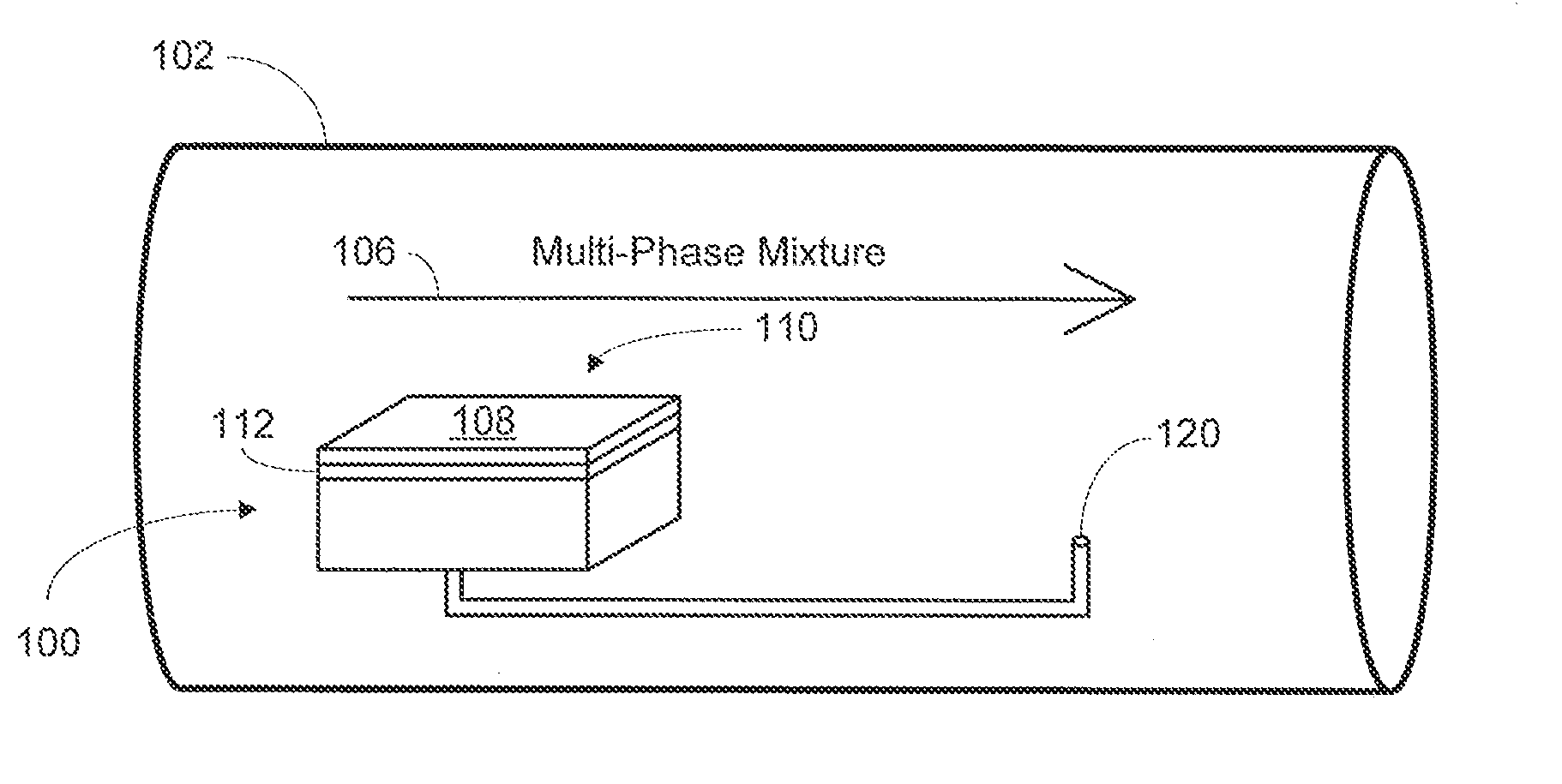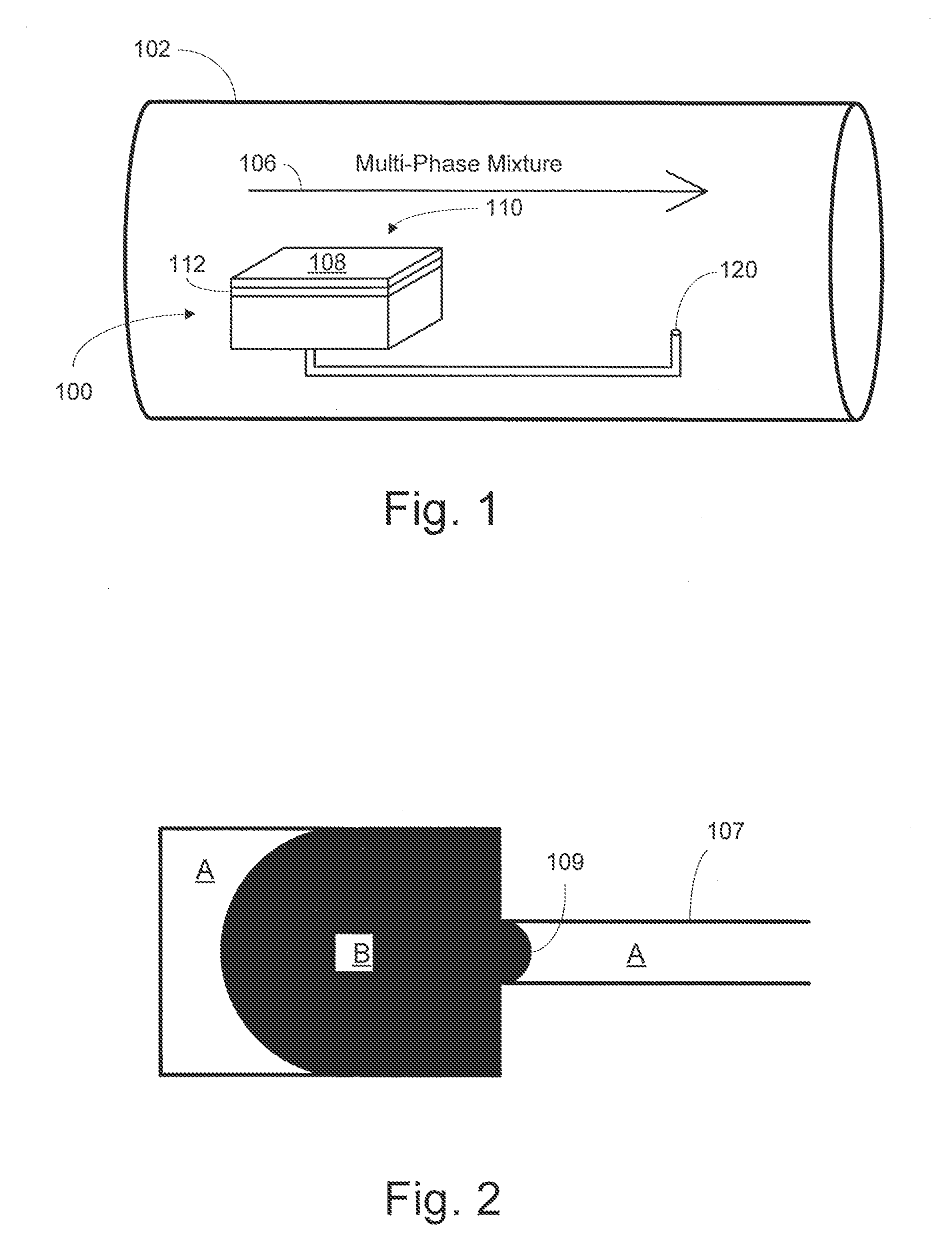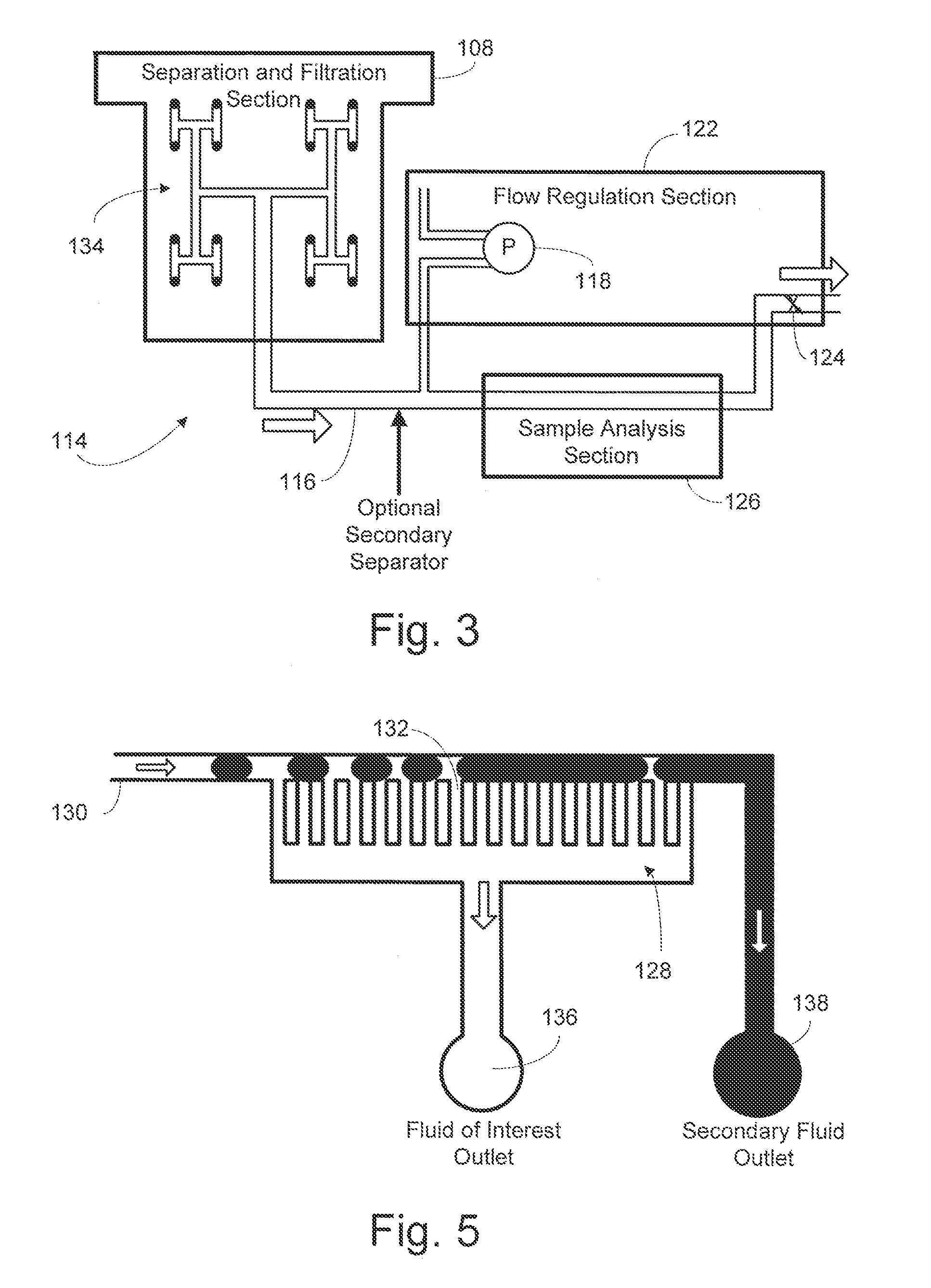Methods and devices for minimizing membrane fouling for microfluidic separators
a technology of microfluidic separator and membrane, which is applied in the direction of laboratory glassware, multi-stage water/sewage treatment, separation process, etc., can solve the problems of clogging or fouling of the separation device, and the time it takes to perform the separation techniqu
- Summary
- Abstract
- Description
- Claims
- Application Information
AI Technical Summary
Benefits of technology
Problems solved by technology
Method used
Image
Examples
Embodiment Construction
[0039]The particulars shown herein are by way of example and for purposes of illustrative discussion of the embodiments of the present invention only and are presented in the cause of providing what is believed to be the most useful and readily understood description of the principles and conceptual aspects of the present invention. In this regard, no attempt is made to show structural details of the present invention in more detail than is necessary for the fundamental understanding of the present invention, the description taken with the drawings making apparent to those skilled in the art how the several forms of the present invention may be embodied in practice. Further, like reference numbers and designations in the various drawings indicated like elements.
[0040]According to embodiments of the invention, the invention includes a fluid separation method for performing fluid analysis. The fluid separation method includes providing a structure with a fluid analyzer and a power sup...
PUM
| Property | Measurement | Unit |
|---|---|---|
| transmembrane flow rate | aaaaa | aaaaa |
| transmembrane flow rate | aaaaa | aaaaa |
| shear rate | aaaaa | aaaaa |
Abstract
Description
Claims
Application Information
 Login to View More
Login to View More - R&D
- Intellectual Property
- Life Sciences
- Materials
- Tech Scout
- Unparalleled Data Quality
- Higher Quality Content
- 60% Fewer Hallucinations
Browse by: Latest US Patents, China's latest patents, Technical Efficacy Thesaurus, Application Domain, Technology Topic, Popular Technical Reports.
© 2025 PatSnap. All rights reserved.Legal|Privacy policy|Modern Slavery Act Transparency Statement|Sitemap|About US| Contact US: help@patsnap.com



